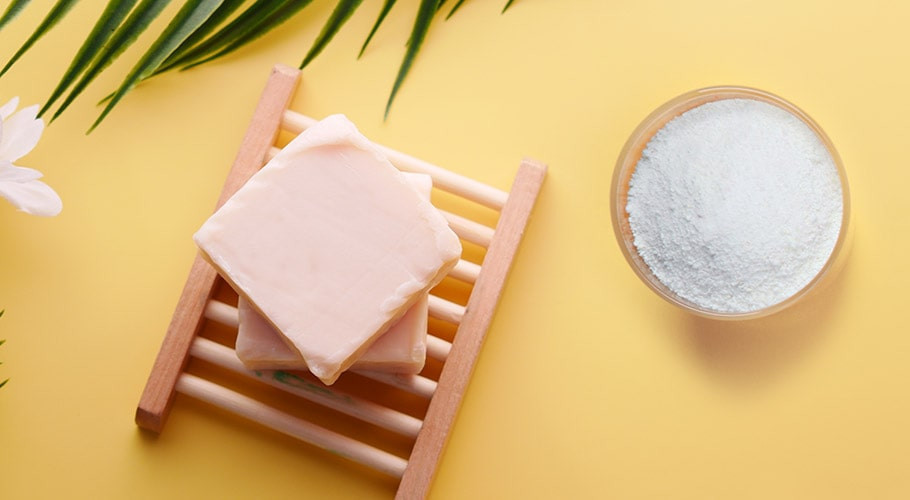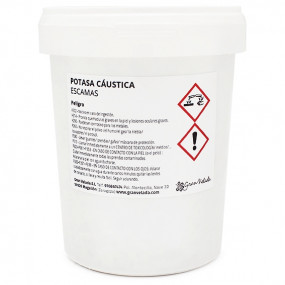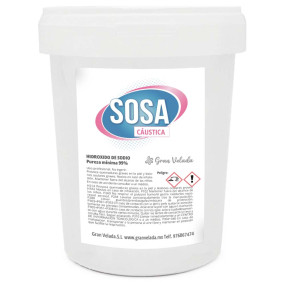¡Producto añadido a favoritos!
Inicia sesión para continuar
Alkalisis for saponification
In Gran Velada you can buy alkalis to make your handmade soaps. The most commonly used in the manufacture of soap are sodium hydroxide (soda, NaOH) and potassium hydroxide (potash, KOH). And it is that the alkalis are essential for saponification to occur, a chemical reaction that results in soap.
Product list
Productos pensados para ti
Saponification
In Gran Velada you can buy alkalis to make your handmade soaps. The most commonly used in the manufacture of soap are sodium hydroxide (soda, NaOH) and potassium hydroxide (potash, KOH). And it is that the alkalis are essential for saponification to occur, a chemical reaction that results in soap.
Saponification is a process that occurs naturally by putting together a fatty acid and an alkali. This reaction gives rise to soaps as we know them, either in pill or liquid form. That is why to make our soaps you can not miss the fatty ingredients, water and one of the two alkalis. The choice will depend on the type of soap you want to get.
Sodium hydroxide results in solid soaps, while potassium generates softer soaps and therefore also more liquids. That is why the first is used to achieve the bars of soap of a lifetime and the second for liquid soaps, either hand or shower gel.
In our online store we put at your disposal the alkalis you will need to make your soaps. These are high purity products that stand out for their quality. They are corrosive, so to handle them it is important to use the appropriate protection measures, that is, put on gloves, mask and glasses. In addition, it must be taken into account that they capture the humidity of the environment and can be caked. Hence, they must be stored in a hermetically sealed container and without exposing too much time to air. For safety, it is necessary to keep the alkalis away from the reach of children and people who do not know their use.
There is usually reluctance when using these alkalis, but working with caution and with the appropriate protection measures there should be no problems. It should also be noted that once the soaps have cured, the alkalis have disappeared.
Saponification of soap
For the saponification of the soap to be correct it is important to perform the previous calculations well. The amount of fat, water and alkalis cannot be measured randomly. On the contrary, it must be calculated accurately so that the result is satisfactory. In addition, we must take into account one more note, the saponification index of each fat is different and also varies depending on whether you work with potassium or sodium hydroxide.
If you are just starting out, in our blogs you will find recipes with the exact amounts so you can make different types of soaps. In this way we try to facilitate your work. You will also find the detailed explanation so you can perform the calculations at home.
Theaponification of the soap can be done by cold or hot process. The first is the most frequent when making soaps in homes. It is done without heat and the drying and curing time is slower. Specifically, the saponification period is usually about 40 days. Meanwhile, the process of saponification of hot soap is faster. Of course, you have to heat the trace of the soap to more than 200º for several hours to favor saponification. This process is very common in the industrial manufacture of soaps.


